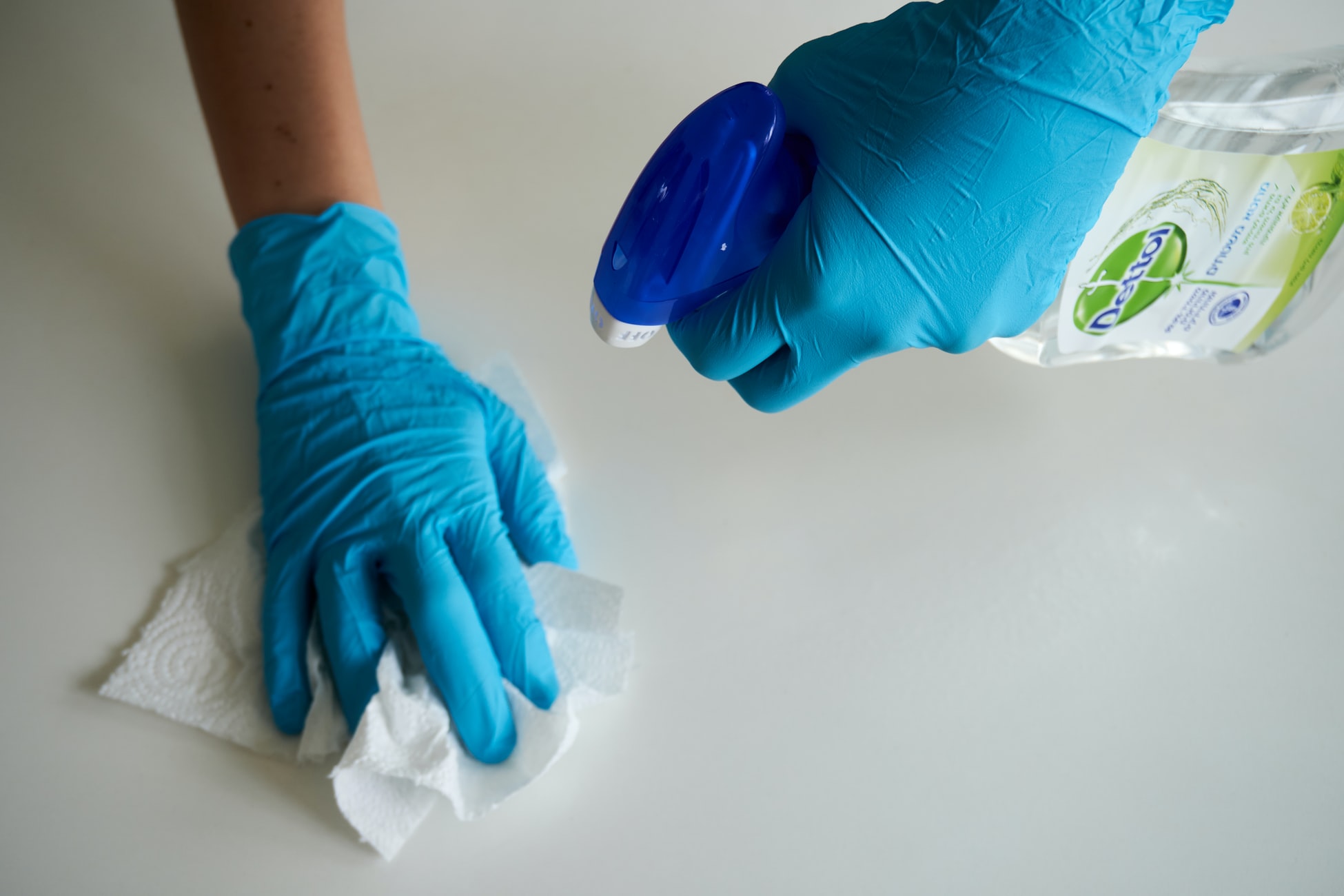BLOG
Self-isolation rules and vaccination status | How things have changed
Written by Charles Spencer on 1 October 2021

Self-isolation is said to be essential to reducing the spread of COVID-19, since it breaks the chains of transmission. As such, there has been a legal duty to self-isolate if a close contact of a positive COVID case and to inform your employer. Additionally, employers are legally required to not let self-isolating employees come into work. Individuals who develop symptoms, regardless of whether a close contact, must self-isolate and take a polymerase chain reaction (PCR) test.
However, England’s self-isolation policy changed on 16 August. Here’s what rules apply now.
Do double-vaccinated employees need to self-isolate?
As part of Step 4 of the government’s lockdown exit roadmap, people who are double vaccinated are no longer legally required to self-isolate if identified as a close contact of a positive COVID-19 case. Before this change, anyone over 18, regardless of vaccination status, had to self-isolate for 10 days if a close contact. Originally, they had to self-isolate for 14 days but this was reduced last December.
Unvaccinated individuals, those who have had just one dose and those who had their second dose within the last two weeks must still self-isolate if identified as a contact. Double-vaccinated individuals who develop symptoms must also still follow the old ‘house rules’ by self-isolating and taking a PCR test. While the double vaccinated don’t now need to self-isolate, they are advised to continue being cautious, to social distance, use facemasks and follow government guidelines. It’s strongly recommended that they take a PCR test, though they are not required to do so. There’s no longer a legal duty to inform employers.
The employers’ organisation, the CBI, welcomed the changes to self-isolation rules, saying it will ease the impact of staffing absence on businesses and help further reopen the economy.
Related Content

Blog
Do Vaccinated Employees Need to Take a PCR test Following Close Contact with a Positive COVID-19 Case?
Do you need support?
Speak to us for an honest, no obligation chat on:
0345 226 8393 Lines are open 9am – 5pm
Key workers and the 'pingdemic'
Staffing absences came to a head earlier this year when more than 520,000 self-isolation alerts were sent to NHS COVID app users in the first week of July, up 46% on the previous week. This led to Prime Minister Boris Johnson’s announcement that critical key workers would be exempt from quarantining if ‘pinged’ by the NHS Test and Trace app.
The move followed warnings of staff shortages from healthcare, transport, retail and manufacturing bodies. Branded the “pingdemic”, some firms reported missing 20% of their workforce after app alerts. As a result, from 19 July, certain designated key workers were freed from the isolation rules if contacted by the app, provided they were fully vaccinated.
Exempted workers included staff in food factories, transport, NHS staff and social care workers. Their return to work was, however, contingent on having a negative PCR test and taking daily negative lateral flow tests for up to 10 days.
NHS app update
Economic pressure also saw an update to the NHS COVID-19 app on 2 August. It now only looks back at contacts two days before someone tests positive, as opposed to the five days of contacts it tracked before.
Health Secretary Sajid Javid said: “We want to reduce the disruption that self-isolation can cause for people and businesses, while ensuring we’re protecting those most at risk from this virus. This update to the app will help ensure that we are striking the right balance”.
Kate Nicholls, Chief Executive of UK Hospitality, said the update was a “positive step forward”. However, Labour’s Shadow Health Minister Liz Kendall described it as “yet another COVID U-turn from ministers at a time when the public need clarity and certainty, not chaos and mixed messages”.
While many people are also believed to have deleted the app to avoid being pinged, the Department of Health claims the app “continues to play a crucial role in breaking chains of transmission, preventing hospitalisations and saving lives”.
Vaccine passports
From 1 October, being fully vaccinated will be a condition of entry for nightclubs and some other events in Scotland. Wales has similarly announced people will need an NHS COVID Pass to enter nightclubs, adult entertainment venues and large scale events next month.
However, plans to introduce so-called “COVID passports” in England aren’t going ahead. Despite saying they would be introduced at the end of September, the government has decided not to introduce them but is keeping them in reserve in case they are needed later. The Health Secretary says they might be considered if there’s a COVID surge over the winter.
The government had faced opposition from backbenchers, and nightclubs have described the passport plan as “chaotic and surreal”.

Plan B
The government has made clear its planned direction of travel is toward fewer restrictions. It has, however, prepared a “Plan B” if COVID data shows the virus is rapidly spreading and threatening the NHS. The Health Secretary says Plan B will involve:
- Reintroducing compulsory face masks in indoor settings.
- Vaccine passports for certain settings, including large outdoor events and indoor events of more than 500 people.
- Asking the public to again work from home.
Provided Plan B isn’t required, ministers are to continue relaxing restrictions, using vaccines to suppress COVID. The government hasn’t mentioned a Plan C but refuses to rule out the possibility of another lockdown this winter. However, the Prime Minister is said to be “dead set” against such a move, preferring to pull less impactful levers if needed.
Criticism
Some medical experts question the continued relaxing of restrictions and warn that the government should move to Plan B now. Chaand Nagpaul, British Medical Association Council Chair, says the evidence suggests vaccines alone won’t be sufficient to stem a rise in infections this winter. He said: “The UK government introduced restrictions last October because they were rightly worried that there were more than 1,000 COVID patients in hospital. Today we have 8,000 COVID patients in hospital and 50% more patients in intensive care.”
Mr Nagpaul adds: “The UK government is advising the public to meet outdoors where possible and to wear masks in crowded indoor spaces. They clearly believe these simple measures do make a difference yet are failing to act by making these a requirement. We’ve had this kind of double speak before, which has resulted in action not being taken until it is too late.”
Every winter the NHS struggles with respiratory illnesses but this year COVID plus such illnesses could bring hospitals to capacity much quicker. The Scientific Advisory Group for Emergencies (Sage) says its modelling suggests hospitalisations could reach 2,000 to 7,000 per day next month, particularly given the return of schools and more people going back to workplaces. Currently there’s an average of just over 750 COVID admissions per day in England. The scientists believe a “relatively light set of measures” could keep case numbers down if brought in early enough.
Sceptics note though how Sage modellers got it wrong back in July when assuming the opening up of society would lead to a surge in infections and hospital admissions. Sage says the closure of schools, warm weather and large numbers of people required to self-isolate played a bigger than expected role in curbing infections. Worryingly, Sage experts believe the peak time for cases expected from July has simply been pushed back to October through to December. Here’s hoping they’re wrong again…
Ensure your workplace stays safe and compliant with WorkNest H&S
Struggling to manage issues around self-isolation, vaccination and testing?
Stay up to date with the latest government guidelines, get quick responses to your health and safety queries, and implement all necessary COVID control measures with support from WorkNest. We assign dedicated Health & Safety professionals to support you with all aspects of risk management, plus provide all the tools, templates and resources you need to simplify your responsibilities and protect your people and your business.
For peace of mind, call 0345 226 8393 or request your free consultation using the button below.



